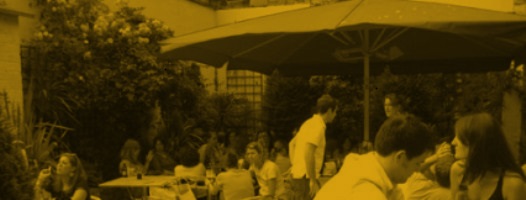The recent case of Starham Ltd v Greene King Pubs Ltd highlights how crucial it is that operators ensure they have certainty of use over land they wish to use in connection with their business (for example as a pub garden), but which does not form part of the land transferred or demised to them by conveyance or lease.
In this case Greene King was using land adjoining their pub, the Mason Arms in Harrow Road, London, for use as a pub garden. The garden land fell outside of their registered freehold title, but rights to use the land were registered in favour of the freehold title by virtue of a 1855 conveyance.
This stated that the then owner of the pub site (John Brown) and his heirs could use and enjoy the adjoining land “as garden ground and for agricultural…or other purposes except building…”. The County Court was asked to decide if this provision created a contractual right or an easement.
If John Brown had acquired an easement, Greene King and all future owners of the Masons Arms would continue to enjoy the use of the garden land as a pub garden. On the other hand, if John Brown had been granted a contractual licence, then Greene King would either lose its pub garden or have to negotiate a licence fee with the adjoining owner for continued use of the land. This is because a contractual licence would not bind successors in title of the garden land (despite being expressed to be for the benefit of the original grantee and his heirs and assigns), meaning the rights could therefore be terminated.
The 1855 conveyance variously referred to the rights granted as both a “licence” and an “easement” throughout. Taking these references altogether the Court interpreted that on balance the language of the document suggested an intention to create a permission to use the land, not a substantive grant of rights in land. Even if an easement had been intended to be created, the Court found that that there was no easement because the rights granted failed the legal test for easements because:
- The garden land was not expressed to be for the benefit of the pub land and it could not be interpreted that the rights to use the garden land were linked to the rights to use the pub land either (in fact the Courts concluded that the intention of the 1855 Conveyance indicated separate uses).
- The ability of the of the owners of the pub land to use the garden land had no connection with the pub land (albeit it practice is was being used as a beer garden for the adjoining Masons Arms).
- The Conveyance granted rights to cultivate the land which is not a right capable of being an easement, and it was considered that the wider rights to use the land “for other purposes” did not qualify as easements either.
The outcome
Greene King was therefore ordered to vacate the garden land to pay damages for use of that land to owners Starham Ltd for an amount which they may reasonably have paid to use that land under licence from Starham Ltd.
Practical pointers
This case highlights the need to ensure thorough due diligence is carried out on acquisition into the nature of rights to use land outside the title being acquired.
This is particularly the case where the loss of rights to use such land is likely to reduce the market value of the property, or to have an adverse financial or operational impact on the business carried on from the property.
Clearly it is not just beer gardens the operator need be concerned with here either, but parking rights, fire escape rights and rights to install air condensing/extraction equipment and like rights where the same fall outside the title of the property being acquired.
You may also be interested in:
https://www.hospitalitylaw.co.uk/weigh-up-the-cost-of-sitting-outside/


